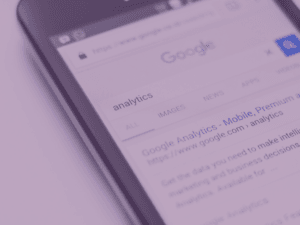
Blog
What Should Your Marketing Focus be in 2022?
1st Feb, 2022
Alex Eade
Are you wondering what your marketing focus should be for the rest of 2022? There are so many options and different elements to digital marketing, it can be hard to know where to start and what the priority should be.
Our Delivery Team are our boots on the ground when it comes to new digital marketing concepts, and what our clients should be doing to maximise their results. Whether you are a current client, somebody looking for a digital marketing shake up, or simply interested in marketing trends for 2022, then read on!
All of the following answers came from a focus group held with members of our Delivery Team.
Those involved were:
- Head of Delivery – Rob James
- Head of Search – Chris Ainsworth
- Head of Paid Search – Michael Scanlon
- Head of Content and Conversion – Josef James
- Content Manager – Simran Kabotra
- Technical SEO – Reuben Marshall
- Paid Media Manager – Shaakir Ahmed
Q: If you could only do one thing for a client this year – what would it be?
Rob: Make them more money online! They need to be flexible and we need to be both reactive to the climate, and proactive to ensure our clients are ahead of the game. So, responding to the changes in their markets, which have been very up and down for the past couple of years with covid. Flexibility and responsiveness are very key to that.
Mike: In terms of paid, one thing that everyone should have a look at is their tracking this year. Because of all the changes around GDPR, data collection, cookies, privacy etc etc. I’d advise clients (and anyone using ppc) to have a look at their tracking because we do sometimes see data missing or wrongly attributed on accounts that we take over, and then the client can’t get a real picture of what’s going on.
J: I would persuade clients to put more R&D budget into marketing so that they’re testing new things, measuring and learning from this new data, even failing at things more because that means growth too – learning from what doesn’t work.
Reuben: I’m struggling to decide on one! Obviously, you have to do the biggest priority thing, which is make sure that everything on your website is indexed. Or, make sure the right things are indexed!
But if the basics are already done, I’d look at SERP features and optimise these. So, make sure they have a well optimised Google My Business, schema, there’s something relatively new which is images from organic results appearing underneath the organic text result.
There’s all sorts of things you can do from a SERPs point of view to take up more real estate and make clients more visible online but it’s not really one thing – especially if you include local in there! But, trying to appear as many times in as many ways as possible on the same search results page has no downside really.
Rob: Yeah, taking up more SERP retail, is definitely something we’d encourage everyone to do this year.
Q: What do digital marketers need to do more of this year (or stop doing)?
Chris A: Clients definitely need to be thinking more about their brand. Marketers shouldn’t be thinking about just a paid search budget, or just improving traffic from SEO – it’s all about the overall brand and a holistic approach to marketing. Let’s improve the integrity and availability of our brand – telling people who we are and what we do. This is going to improve credibility which in turn will improve all other areas of marketing.
Rob: I echo that – we need to stop the siloed approach to digital marketing, the most obvious problem is that people silo their print or traditional marketing from their digital marketing and then there are inconsistencies and data doesn’t get communicated.
Simran: For me it’s having a solid, standardised content strategy for the year – planning and thinking about everything that needs to be created and how that will be promoted, shared and lead to discussions.
Shaak: I think it’s about being braver in 2022. Experimenting is part of this, being more agile is part of this, because the marketplace is changing and more competitors are in the online space and the customer journey is getting more complicated than ever before with so many new platforms, it’s now more difficult to get a conversion than it ever was before so we need to do more to engage the consumer.
You can get your potential customer at the start of the journey, introduce them to your product and then easily lose them at any point in the process to a sale.
The pressure on digital marketers like us to do something about it is higher so we need to be dominating all these new platforms, really getting to grips with them and using them, and even working outside of digital to compliment what you’re doing online.
J: Something to leave behind is Acronyms! Leave those things far behind! They’re a massive barrier to entry – I’ve been in this for three years now and you guys for much longer, I still scroll through my LinkedIn feed, read some marketer rubbish and it will just be a list of acronyms and I’ll have to go Google them all. Then I’ll be like ‘oh, that means customer lifetime value – why not just say it?’
We need to bring back real human language into marketing and make it accessible to everyone. So, I hate acronyms, but that might just be me!
Another thing we need to stop doing as marketers – expecting quick results! It doesn’t matter which service or marketing type you’re going for. There’s always this idea floating around that SEO is a slow burner and PPC is really quick results, and it’s just not true.
Marketing has to be a long term investment to reap the real rewards, and one thing I’m hearing a lot more in the conversion conversations I’m having is that people are talking about it more in terms of experimentation.
Even the conference that we’ve been invited to this year has now been renamed ‘Experimentation Elite’ (more on this later!) So a lot more people are thinking of conversion practices as an experimentation thing and I think this should extend into other practices too, like SEO and PPC. Trying new things and testing and measuring should be every marketer’s bread and butter to get ahead.
Q: What is your department excited for in 2022?
Reuben: I’ll be using a lot more keyword intent, factoring into site maps and that sort of thing because there are lots of tools available to us now (like SEMRush) which provide information for what users are looking for on certain keywords (whether their intent is informational, transactional etc.) and we can actually use that information to change the types of content we are writing for people, or what we are recommending to include or exclude in the site map.
For example, we could exclude a keyword that we know has informational intent from a product site map, and say that instead we’re going to write a really good series of blogs around that keyword which would help to deliver a better user experience because it will be more focused on what the user is actually looking for rather than trying to force them down a commercial path.
Chris A: I’m looking forward to getting stuck in to lots more testing this year – there were things like the page speed updates last year that offered great opportunities for testing, so I’m keen to keep our fingers on the pulse and look out for new updates and changes that we can test for our clients – and ourselves! Part of this will be reactive, but I think just general testing and not being scared to try new things out – that’s what SEO was built on!
Josef: We’ll be focusing much more on creating content for the whole customer lifecycle, and focusing on customers from capture to keeping (and retention). We’re going to be looking much more at experience led content, focusing on the whole customer experience when creating content and not siloing it away from other elements of marketing.
Content in terms of actually responding to customer experience surveys, having a plan off the back of what your customers are actually saying, what they’re asking.
We always have a heavy focus on keyword research around that, but it’s important not to forget the qualitative data too. This, in my opinion, is some of the stronger, more important data, especially when it comes to more niche industries where there is less keyword volume.
Mike: I’ve been doing a lot of research on three core things I want to focus on even more this year. The three As! Automation, audience and attribution are three things which we already look at but which are going to become even more important this year.
In terms of automation, the conversation that we’ve had around several accounts, is if we’re pushing all this automation – smart bidding, smart creative etc then how can we retain that human element and ensure that we are using a combination of new technology to make paid more efficient, but combining that with the deep knowledge and contextual understanding of paid media specialists to really ramp up what we can do for our clients.
Audiences is something that J alluded to, in the sense of what are people actually interested in and what do they want to know? We need to be working on providing really tailored content for what an audience wants. I’m looking at that from a platform perspective as well. Every article I read about platforms for 2022 has TikTok as their top, go to platform.
TikTok was’t built for my generation, which is why we have specialists like Shaak on the team, but in terms of audiences we’re looking at how the arena has fragmented and people like TikTok, Instagram and lots of other platforms out there are offering a paid alternative and a marketing aspect to what they do. Just before Christmas 2021, TikTok buddied up with Shopify, so clearly there will be more monetisation of the platform in their plans for 2022.
The final one is attribution, and where the value comes from.
We talked years ago about assisted value, Google talks about it all the time, and we know that nobody goes to a website on the first visit and spends a significant amount of money. We know there’s a journey, and digital marketers need to be cleverer about how they manage this journey.
This is a cross specialism thing as well – it’s definitely not just about paid search. There’s lots of stuff that Chris and the SEO team do that feeds into this, as well as J and conversion optimisation.
It’s all part of that customer journey and everything is assisting in the conversion so it’s vital all marketing teams work together on this.







